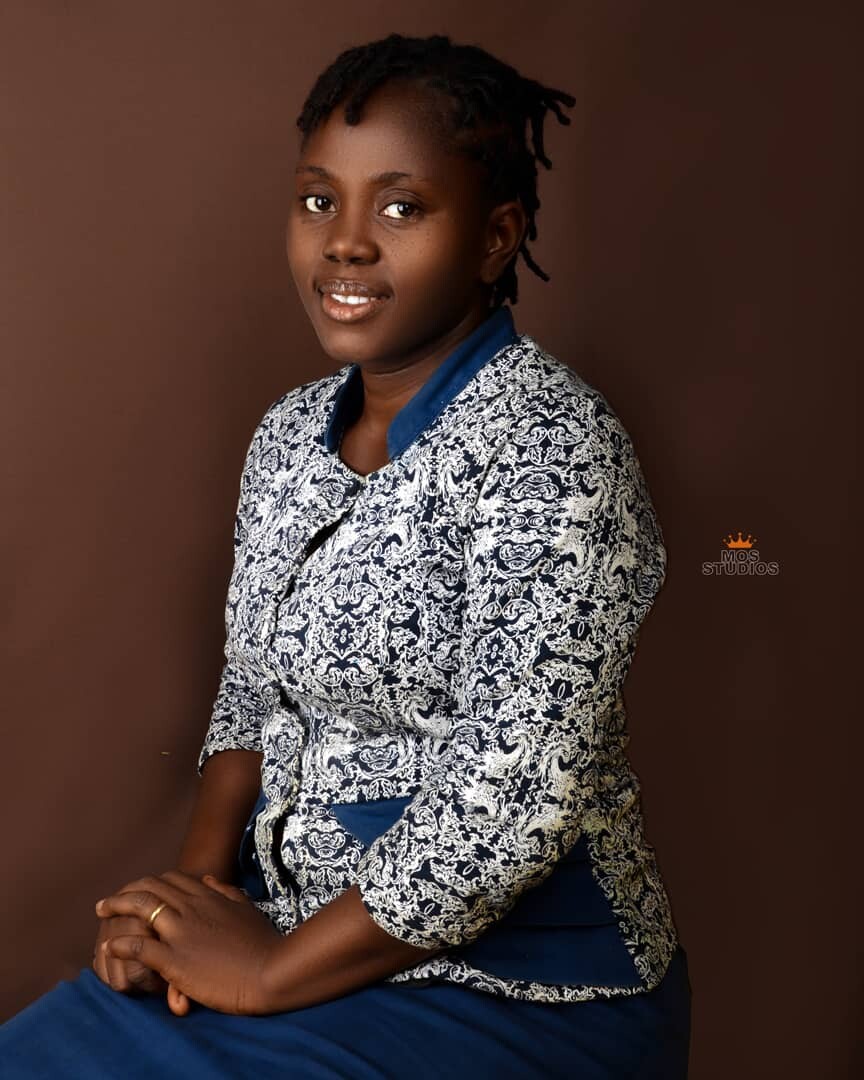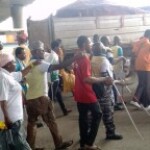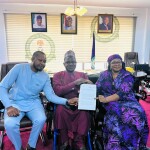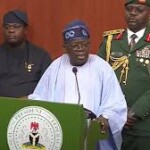Funmi Ogunro, founder, the Friend of the Deaf International, is bidding for the top job of the Association of Sign Language Interpreters of Nigeria (ASLIN) Lagos. She shares her manifesto with ER.
How do you intend to position ASLIN Lagos as a strong voice in influencing Lagos State policies on disability rights, particularly the recognition of sign language interpreters in government programs and institutions?
As chairperson, I'll leverage my experience working with government agencies, NGOs, and the Deaf community to position ASLIN Lagos as a strong voice in influencing Lagos State policies on disability rights. I'll build relationships with key stakeholders, including NNAD, LASODA, NCPWD, to ensure our profession is recognized and valued in government programs and institutions. My track record of delivering results through FDF Academy and hosting the Inclusive Spelling Bee demonstrates my ability to drive change and mobilize support.
Despite the Disability Act and LASODA’s existence, sign language services remain scarce in hospitals, schools, and courts. What practical steps will you take as chairperson to push for enforcement?
To push for enforcement of the Disability Act and LASODA's mandate, I'll work closely with government agencies, NGOs, and the Deaf community to identify areas where sign language services are lacking. I'll advocate for the development of implementation guidelines and protocols to ensure sign language interpreters are deployed in hospitals, schools, courts, and other critical sectors. My experience in advocacy and community mobilization will enable me to effectively push for change.
What is your plan for building sustainable partnerships with ministries, agencies, and legislators to secure interpreters’ inclusion in state budgets and official frameworks?
To build sustainable partnerships, I'll identify key stakeholders in government, civil society, and the private sector who share our vision for inclusive development. I'll work with them to develop memoranda of understanding, collaborative frameworks, and joint advocacy initiatives that promote the inclusion of sign language interpreters in state budgets and official frameworks. My network and experience in building partnerships will be invaluable in driving this agenda.
Sign language interpreting in Nigeria lacks standardized regulation. How will you work towards professionalizing the field—setting ethical standards, training, and certification benchmarks for interpreters in Lagos?
To professionalize the field, I'll work with ASLIN National body in Abuja, WASLI, NCPWD, and other stakeholders to develop standardized training and certification programs for sign language interpreters in Lagos. I'll also advocate for the development of a code of ethics and conduct for interpreters, as well as mechanisms for monitoring and evaluating their performance. My experience in education and advocacy will inform my approach to professionalizing the field.
Interpreters’ skills vary widely across the state. What mechanisms will you put in place to ensure continuous professional development and quality assurance for members?
To ensure continuous professional development and quality assurance for members, I'll establish regular training workshops, mentorship programs, and peer review mechanisms. I'll also work with stakeholders to develop a system for monitoring and evaluating interpreters' performance and providing feedback for improvement. My experience in education and capacity-building will enable me to design effective programs that meet the needs of interpreters."
Deaf people still face exclusion from essential services like healthcare and justice because interpreters are absent. How will you collaborate with stakeholders to make sign language interpreters a permanent fixture in these critical sectors?
To make sign language interpreters a permanent fixture in critical sectors, I'll collaborate with stakeholders, including government agencies, NGOs, and the Deaf community, to identify areas where interpreters are needed most. I'll work with them to develop strategies for deploying interpreters and ensuring their services are valued and respected. My experience in advocacy and community mobilization will enable me to effectively engage stakeholders and drive change.
Interpreters often complain of poor remuneration, lack of recognition, and burnout. What concrete plans do you have to improve their welfare and working conditions under your leadership?
In order to improve the welfare and working conditions of interpreters, I'll work with stakeholders to develop policies and programs that recognize the value of their work and provide fair remuneration. I'll also establish a welfare and support scheme for members, including access to health insurance, cooperative savings, and emergency support. My experience in advocacy and community development will inform my approach to improving interpreters' welfare."
Beyond advocacy, how do you plan to mobilize funding, grants, or partnerships that can open up more economic opportunities for interpreters in Lagos?
I do my best to mobilize funding and partnerships, I'll work closely with my executive team to identify potential donors, NGOs, and private sector organizations that share our vision for inclusive development. I'll work with them to develop proposals, partnerships, and collaborative initiatives that promote economic opportunities for interpreters. My experience in fundraising and partnership-building will enable me to secure resources and support for our members.
Many associations struggle with leadership accountability. How will you ensure transparency in ASLIN Lagos, especially in financial management and decision-making?
In ensuring transparency in ASLIN Lagos, I'll establish clear financial management systems, including regular audits and financial reporting. I'll also ensure that decision-making processes are inclusive, participatory, and transparent. My experience in governance and leadership will inform my approach to transparency and accountability.
Interpreters sometimes compete for opportunities in ways that create division. What would be your leadership strategy for resolving conflicts and promoting unity within ASLIN Lagos?
I hope to promote unity and resolve conflicts within ASLIN Lagos, by establishing clear communication channels, regular feedback mechanisms, and a conflict resolution process. I'll also work to build trust and foster a sense of community among members, recognizing the value of each individual's contributions. My experience in conflict resolution and mediation will enable me to effectively manage conflicts and promote unity.
If elected chairperson, what specific legacy would you like to leave behind in the next four years for interpreters and the Deaf community in Lagos?
As the chairperson, my legacy will be one of empowerment, inclusivity, and professionalism. I'll work to establish ASLIN Lagos as a strong, respected voice in the disability rights movement, and ensure that sign language interpreters are valued and recognized for their critical role in promoting accessibility and inclusion. I'll leave behind a legacy of positive change, driven by a commitment to the Deaf community and the profession of sign language interpreting.







